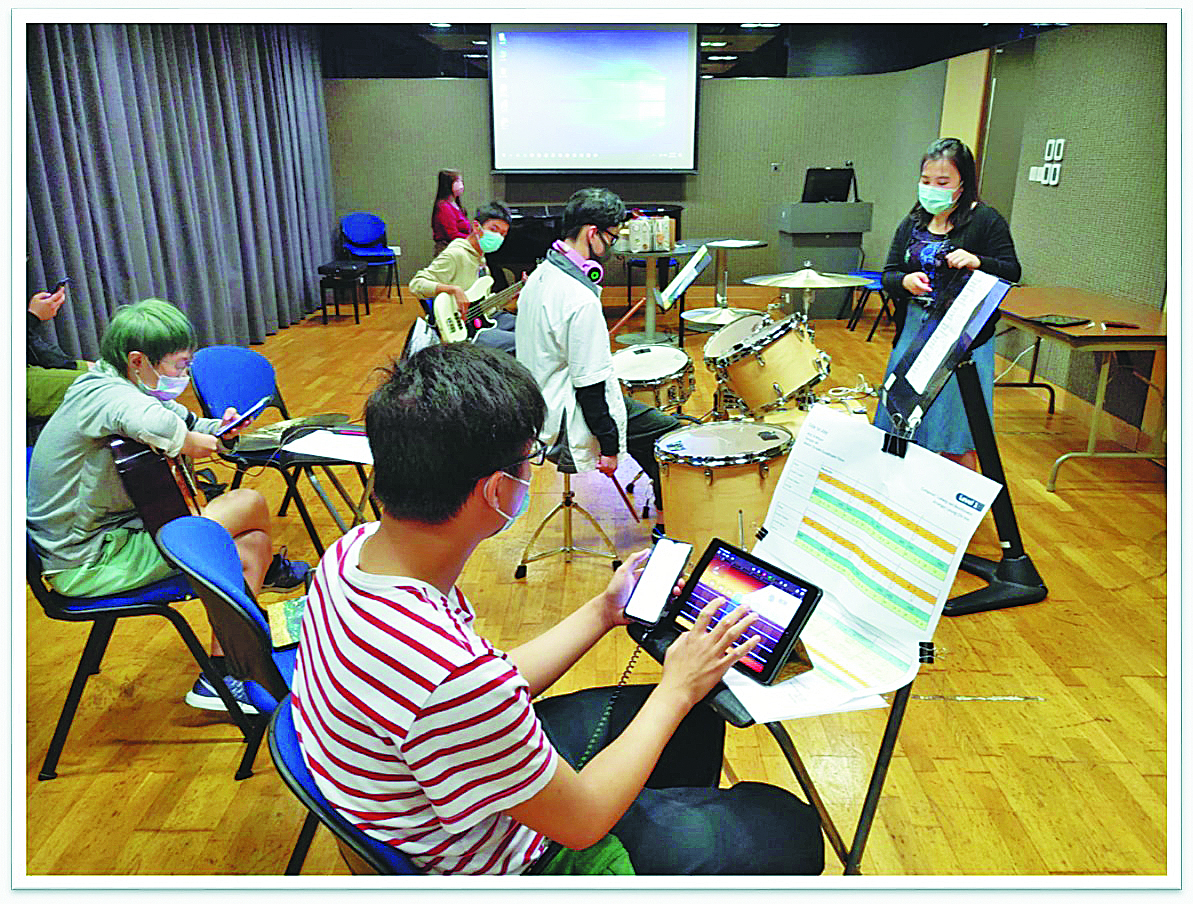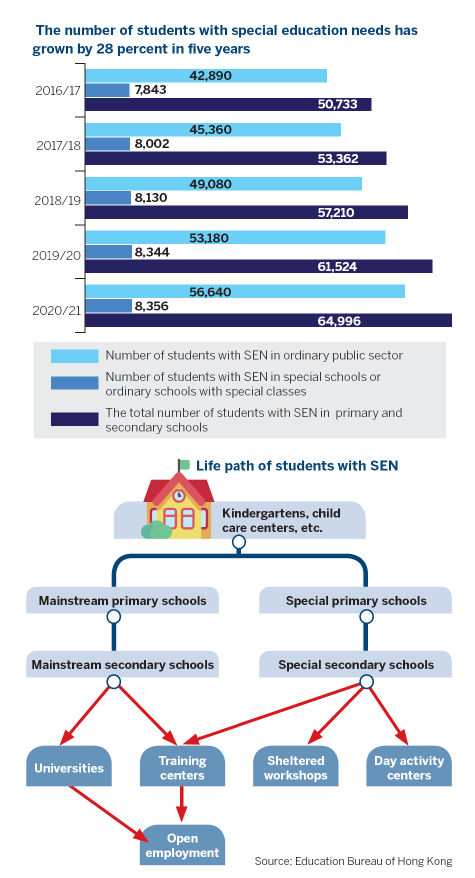New education opportunities bring fresh hope


'Plan B'
The pandemic left the city's social welfare network paralyzed, forcing the development of a "Plan B" for training centers, or possibly even a better system in case the welfare system collapsed under a sudden social crisis, said Glendy Choi, whose 23-year-old daughter has autism.
The businesswoman was among those who refused to accept failure for their children, so she founded Learning Bridge, an NGO that aims to find jobs for SEN students.
Choi also plans to establish an operation named LBHub, an on-the-job, real-life workplace employing young people with SEN and focused on the digital workplace.
The employees will work in fields such as data processing, software or application testing and multimedia production, which are all practical skills in line with the needs of society.
"The current curriculum in vocational training centers for SEN students is in dire need of improvement," Choi said.
When her daughter studied office skills at one of the centers, Choi was surprised to find that she was learning the Cangjie Input Method, a traditional way of inputting characters invented 50 years ago. It was the only method taught and used in the course.
In addition to skills training and work experience, LBHub will provide students with social and communications skills to improve their emotional readiness, with support and supervision from job coaches, social workers and counselors.
Choi understands that it will take time to reform the rigid skills-focused syllabus in the vocational training system. As the parent of a young person with SEN, she decided to use her own experience to help such people connect with society.
Wallace Lau suggested that parents should find new working styles for their children, rather than relying on the job market, even if that means becoming employers themselves.
In October, he started a studio to turn SEN students' paintings and designs into products-such as backpacks, umbrellas and scarves-to improve their incomes and make their talents wider known. So far, hundreds of products have been sold.
Just one month after opening, the studio set up a booth at a trade fair in Kowloon. The three-day event was held to aid SEN students, with all 12 stalls operated by social organizations in fields such as hearing and speech impairments and intellectual disabilities. Wallace Lau's booth welcomed more than 2,000 people and made HK$30,000($3,822).
Society and parents often expect nothing more from SEN students than for them to do simple work to integrate into the community, Wallace Lau said.
So, when the Education University of Hong Kong launched the first university program for SEN students, many parents hesitated to send their children, even though admission to the program only required an interview, with no DSE results.
More importantly, unlike training centers, the university doesn't simply focus on vocational training and it has no responsibility to introduce students to job opportunities. After three years, they will still be on their own, very likely still unemployed.
For Wallace Lau, the job offers his son received were his answer to the other parents' concerns.
"Improving ability is much more helpful than relying on social welfare in a society that follows the rule of natural selection and survival of the fittest. Moreover, ability is not just about vocational skill but comprehensive capability, including learning ability and personality," he said.
Change in perception
Choi said, "Most employers have a limited understanding of the abilities and potential that young people with SEN can offer, resulting in the misallocation of resources in society."
As someone who employs a person with SEN, she said their condition need not present a problem if their abilities are used in the right way.
Since the end of last year, Sunnie, a 26-year-old with autism and attention deficit hyperactivity disorder, has been working at her NGO, helping with research and planning events.
Choi said Sunnie is diligent and never bored by repetitive work, such as data processing and desktop research, which other people may find dull.
Moreover, he is loyal to the company and values the job opportunity more than most people. He shows great passion for his work, even asking to bring work home when he was quarantined after a family member was diagnosed with COVID-19, Choi said.
Having worked in the commercial sector for many years, Choi said companies are business organizations that hire people to make a profit, so employing disabled people out of a sense of social responsibility is not sustainable.
To encourage the employment of disabled people, since Sept 1, 2020, the city government has granted eligible employers a maximum allowance of HK$60,000 for each disabled person they hire. The employee's supervisor gets a bonus of HK$1,500.
Choi said the allowance is a good incentive for employers to take the first step toward giving jobs to people with SEN.
In the long run, it is the employers' realization of the special abilities and potential of their SEN employees that will enable the creation of a truly inclusive workplace, she said.



















